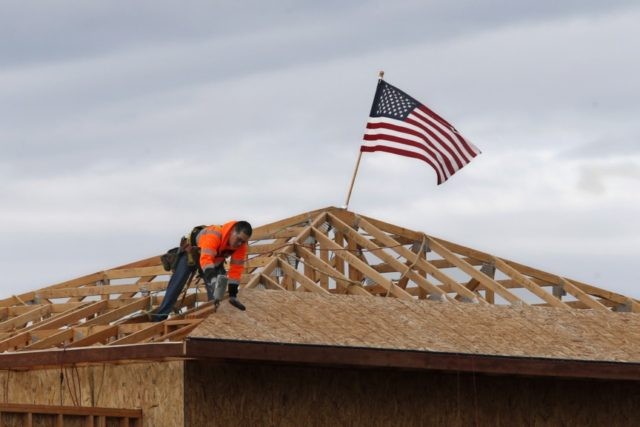Democrat strategist Justin Horwitz believes the next stage of relief should come in the form of a $2 trillion infrastructure bill, noting that it is “just what the doctor ordered” during an appearance on Breitbart News Saturday.
President Trump said last week that the next phase of economic relief should come as a “big” and “bold” infrastructure bill, designed to strengthen the economy, which has taken a shellacking due to the coronavirus pandemic:
With interest rates for the United States being at ZERO, this is the time to do our decades long awaited Infrastructure Bill. It should be VERY BIG & BOLD, Two Trillion Dollars, and be focused solely on jobs and rebuilding the once great infrastructure of our Country! Phase 4
— Donald J. Trump (@realDonaldTrump) March 31, 2020
Horwitz agreed, telling Washington Political Editor and Breitbart News Saturday host Matthew Boyle that a $2 trillion infrastructure bill is “just what the doctor ordered.”
“And now that this coronavirus pandemic is playing out, it’s really exposing tremendous deficiencies in our critical infrastructure. I think it’s a great idea, and I think the Democrats should work with the president to get it done,” Horwitz said.
He also called for the federal government to follow the Danish model in telling companies that they’re going to cover “75 percent of people’s salaries if they don’t lay them off … some type of three month program that protects workers so corporations don’t have to go through all the bureaucratic nonsense of laying people off, furloughing them, bringing them back on, everyone having to apply for unemployment.”
Boyle noted that the $350 billion small business loan program addresses many of those issues. Roughly $4 billion has already been allotted, primarily through community banks.
“What I think would be an improvement would be something like the Danish have done. Basically tell these companies don’t lay them off, we’re going to foot your payroll for a few months and, you know, because these unemployment claims are kind of scary,” Horwitz said. “A lot of people don’t even qualify for filing for unemployment, so these numbers are likely much higher. We’re going to need, especially if this drags out longer, to provide much more assistance directly to working families.”
Boyle and Horwitz also discussed the differences between the financial crisis of 2008 and the current economic crisis. The 2008 financial crisis was, primarily, the fault of big banks, whereas the fault of the current crisis lies with a virus.
“One of the big differences is that this crisis has exposed major deficiencies in our critical infrastructure, particularly in critical manufacturing sectors,” Horwitz said, noting that it revealed just how reliant the U.S. and world are reliant on China.
Any new stimulus can effectively “address structural deficiency that have been exposed as a result of this virus,” Horwitz said.
Putting money into “critical manufacturing sectors, emergency services sectors, health care and public health sectors in addition to transportation — getting our roads, bridges, airpots, things like that rebuilt and modernized, which is good for the whole economy,” he explained. “We can basically fix the deficiencies that have been exposed and then prepare our economy for, you know, the 21st century, which we’re clearly not prepared for right now, and that’s what this virus is showing is where we’re deficient.”
“So this $2 trillion in infrastructure, I’m personally a huge fan of it. I think people talk a lot about infrastructure and never get it done. It would be tremendous to get done,” he continued, adding that it would be a “great gift to working families” and “everybody in America.”
People don’t understand that, when you update and modernize, “you’re going to increase GDP just as a result of being more efficient and optimizing different services, especially in critical infrastructure sectors,” Horwitz continued.
“There’s so much great that would come out of this especially at a time like this,” he added, noting that everyone knowing of a $2 trillion infrastructure bill pouring money “directly into domestic infrastructure, I think, would do a tremendous amount to alleviate concern that, you know, maybe the first $2 trillion might not be enough given how serious and how dramatic the shutdowns in America have been.”

COMMENTS
Please let us know if you're having issues with commenting.